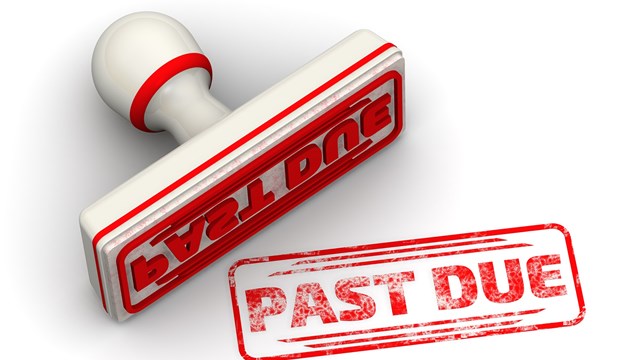
There are few things upon which most people agree, but a general dislike for paying more today for something that cost less yesterday is pretty universal. This goes for taxes, consumer goods, healthcare, and of course for monthly maintenance or carrying charges to a condo, co-op or HOA. But like it or not, the reality is that major building systems wear down, natural disasters happen, and the environment around a property changes over time. All of these will eventually mean an increase in what each individual shareholder or owner must pay in order to keep his or her community solvent and well-maintained.
That said, it’s important for boards, management and residents alike to understand why and at what intervals fees should be increased. An open and honest board committed to transparency in its processes will have a much easier job conveying the necessity of a cost hike than one acting arbitrarily or in a clandestine manner. Similarly, residents who know the whys and wherefores of an increase are far less likely to grumble or resent their board for implementing it.
Broadly Speaking
While every association is unique, there are certain commonalities related to why a maintenance fee increase could be necessary.
“Maintenance charges are going to be driven by a few different things,” says Sean Jordan, Director of Property Management at FirstService Residential in Canton, Massachusetts. “It could simply be that expenses are increasing, or that a short- or long-term plan is finally coming to fruition. For example, say that a piece of building equipment or machinery has become harder to maintain, and needs an increasing amount of service—or you’re increasingly repairing something because the association has been using it more. There could also be a change to a local ordinance that requires some work at the property to make sure it’s in compliance.”
Insurance can also be a factor. “Both general and liability rates could go up, as could utilities” says Jeanne Eberhardt, a property manager for Casagmo, a community in Ridgefield, Connecticut. “And cost of living increases can impact landscaping, snow removal, and trash removal.”
More sprawling communities with enough land to expand onto can grow significantly from year to year – and this can also cause maintenance increases. “We make increases with inflation and as the community grows,” says Laurel Wolfe, Association Manager at Sleepy Hollow Lake in Athens, New York. “We have 800-plus homes with 400-plus building lots yet to be approved, and all pay the same dues. But as we get more residents, we require more maintenance to the common areas.”
“Every association should have a nominal increase to common charges and maintenance on a yearly basis, just to keep up with the cost of living,” adds Mark Liberman, Founder of On the Mark Management in Milford, Connecticut. “I’m talking a point and a half to 3 percent annually.”
A board might also increase monthly charges to build its reserve fund. “Most often you don’t want to allocate less money to your reserve fund than the previous year, if operating expenses increase,” says Michelle Stark, a property manager with Realty Performance Group in Rochester, New York. “When working with boards on their budgets, it’s important to put together the operating expense portion first, then see what’s left to be allocated into the reserve. Although each association has distinct needs, most often I see a $5-$10 increase in maintenance charges every other year.”
Selling the Plan
Maintenance increases cannot be affected unilaterally. A board/management team must explain to the rest of an association why paying more money is necessary. This is best done with honesty and transparency.
“I remind everyone that the people driving these decisions are also homeowners and are subject to the same increases; so these choices are not made lightly,” says Jordan. “If we’ve decided to increase maintenance charges, you can guarantee that we’d taken a look at the reserve schedule, at actual reserve balances, at what the necessities for the community are, etc., before we’d decide that this needs to happen. The reasons these increases come in is either operation costs or the community’s costs are higher than what we’d have on hand in free cash flow.”
Ideally, this won’t be management’s first time at the rodeo, and it will be able to convey why fees need to be raised in clear and concise terms. “The property manager brings an expertise in the operation of a community that a board and residents should be able to ascertain,” says Liberman. “The manager should be able to explain what something will cost, why it’s a worthy expenditure, and how things will only be more expensive in the long term should you not act now. Newsletters, monthly open meetings with a clear agenda, and proper notice will all help get owners on board with these decisions.”
“Nobody can punch holes in something that’s properly prepared and unassailable,” adds Eberhardt. “Accurate financials are key, because you cannot argue with numbers—although people will argue about everything else. It’s a delicate balancing act. Raising maintenance charges and communicating that a portion will go to the reserves generally helps to not raise owners’ hackles.”
Consequences of Inaction
If it comes as any comfort to boards worrying that increasing maintenance charges might stoke the ire of the residents, the alternative may be much worse—and in some cases, could actually sink the association.
“Refusing to raise fees when an increase is needed will leave an association high and dry when it is time for a major maintenance project,” says Stark. “Boards don’t always want to increase because of the pushback from the community, but dodging this inevitability is sure to backfire. It’s important to thoroughly show the community at annual meetings how the budget works, and why increases are necessary.”
A board with some excess cash in its operating account can potentially defer raising maintenance charges, or increase them at a lesser rate, but this too can come back to bite them. “If a board with some extra money needs a 10 percent increase, they might only adapt a 5 percent uptick, instead opting to use that operating money that they’d not allocated to their reserves,” says Jordan. “They’ll be burning free cash, but I don’t recommend doing that for a particularly long period of time. I’ve seen communities go for years without a fee increase, and then you come in and hit them with what is basically the same increase it would have been before, say 5 percent. But what would have been 1 percent per year over five years—less than inflation—at 5 percent is a lot more jarring. It’s easier to wrap heads around a minor routine increase than a larger sudden one. There’s a psychological factor.
“Also, if the association doesn’t maintain its equipment, then the useful life of that equipment is reduced, which in turn increases its maintenance schedule and throws off the reserve study,” Jordan continues. “The reserve study takes for granted that the association is doing preventative maintenance on a regular basis and fixing anything wrong sooner rather than later. If they’re letting those things atrophy, then by the time they get around to fixing their equipment, they won’t necessarily have the money to do so, and that messes with the long-term planning.”
In the end, the old adage about a ‘stitch in time’ remains true here: the association that makes the necessary decisions—even unpopular financial ones —when the situation demands it is the association that survives over the long term. Most owners, begrudgingly or not, understand that a slight increase in maintenance charges from year to year is the cost of doing business—and if they do not, it is the board’s responsibility to explain that to them. It’s when a board avoids implementing a required increase for whatever reason, only then to disclose after several years that the association will be underwater if they don’t drastically increase maintenance, that the residents are likely to grab their pitchforks.
Mike Odenthal is a staff writer/reporter for The New Jersey Cooperator.






Leave a Comment